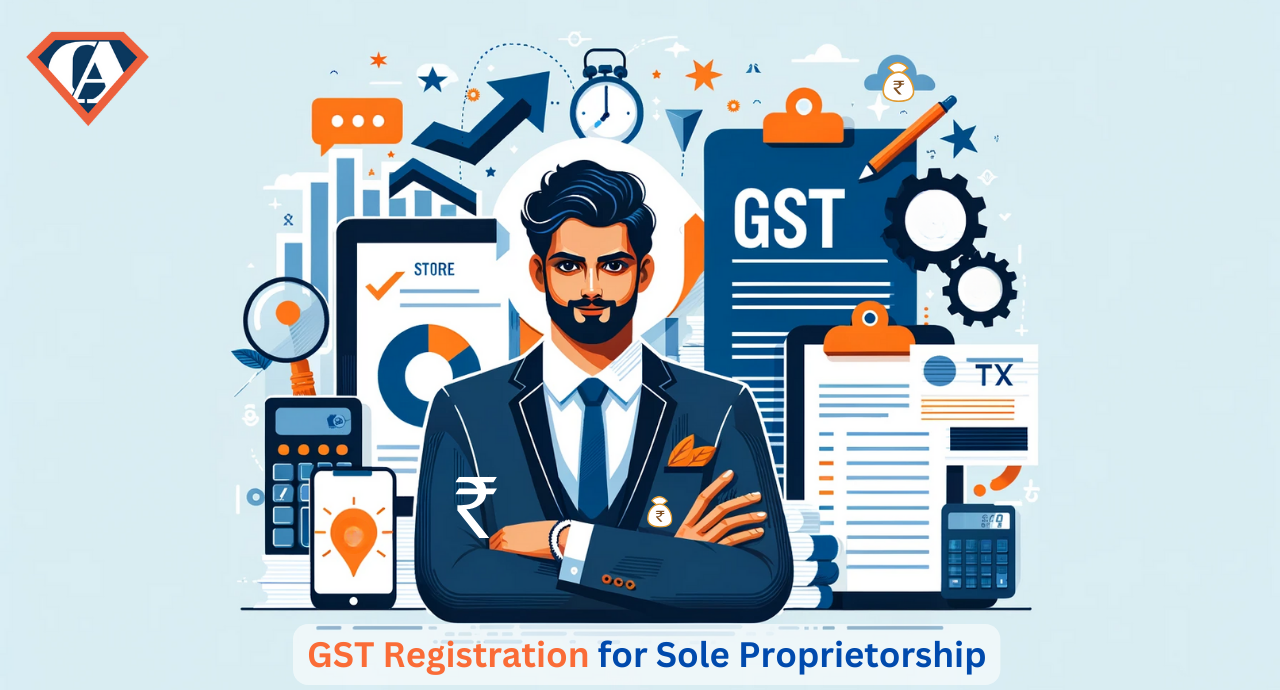Comprehending the Conveniences of the Best GST Registration Services in Singapore
Comprehending the Conveniences of the Best GST Registration Services in Singapore
Blog Article
From Begin to Complete: The Ultimate Roadmap to GST Enrollment for Organizations Seeking Financial Stability
Navigating the complexities of Item and Provider Tax (GST) enrollment is an essential action for services making every effort for monetary stability. Damaging down the roadmap right into manageable actions can simplify the enrollment journey for organizations looking to boost their monetary standing.
Understanding GST Fundamentals
Looking into the basic principles of Goods and Services Tax Obligation (GST) is essential for gaining an extensive understanding of its implications on businesses and the economic climate. GST is a value-added tax levied on many products and solutions for residential consumption. It has actually replaced multiple indirect tax obligations that existed in the pre-GST age, enhancing the tax obligation structure and enhancing convenience of doing business in India. Under the GST system, both items and services are exhausted at a details rate, which is established based on their classification. If their annual turnover surpasses the threshold limitation set by the federal government, services are needed to sign up for GST. Input Tax Credit Scores (ITC) is a substantial function of GST, enabling services to assert credit rating for tax obligations paid on inputs, reducing the total tax obligation burden. Recognizing the fundamentals of GST is crucial for organizations to comply with tax laws, manage their financial resources effectively, and add to the country's economic development by joining a transparent tax obligation system.
Eligibility Standards for Enrollment
To sign up for GST, companies need to satisfy specific eligibility standards developed by the federal government. The key qualification requirement is that any company associated with the supply of products or services with a yearly accumulation turnover over the threshold limit established by the authorities must sign up for GST. As of the present laws, the threshold restriction for GST registration is a yearly aggregate turnover of 40 lakhs for companies operating within a state, except for unique category states where the restriction is 20 lakhs. Additionally, certain services are needed to register for GST regardless of their turn over, such as interstate vendors, informal taxed individuals, and businesses reliant pay tax obligation under the reverse fee mechanism. It is essential for businesses to thoroughly evaluate their turn over and purchase types to establish their GST registration obligations precisely. Failing to sign up for GST when eligible can result in charges and legal effects, making it important for companies to abide by the specified eligibility standards.
Files Needed for Enrollment
Having fulfilled the eligibility standards for GST registration, services need to currently ensure they have the requisite files in location to continue with the registration procedure successfully. The documents required for GST enrollment normally consist of evidence of service constitution, such as partnership act, enrollment certification, or consolidation certification for various kinds of companies. Additionally, services need to give papers establishing the primary workplace, such as a rental agreement or power expense. Frying pan card of business, along with the identity and address proof of promoters/partners/directors, are necessary for verification objectives. Checking account statements, in addition to terminated cheques or a copy of the financial institution passbook, are required to verify the monetary information supplied throughout registration. Furthermore, companies have to have digital signatures ready for the licensed notary. Guaranteeing all these documents are arranged and conveniently offered will quicken the GST registration process, allowing businesses to abide by tax guidelines flawlessly.
Step-by-Step Registration Process
Starting the GST enrollment procedure involves a series of organized actions to make certain a smooth and compliant enrollment for services. The very first action is to go to the GST portal and fill in the enrollment type with exact information of the service entity. Following this, the click to investigate applicant receives a Momentary Reference Number (TRN) which is utilized to return to the application process if it's not finished in one go.
Next, all called for documents according to the list supplied by the GST portal requirement to be submitted. These papers typically include proof of company registration, identity and address evidence of marketers, economic statements, and business entity's PAN card.

Post-Registration Compliance Guidelines

Verdict
Finally, companies looking for monetary stability has to recognize the fundamentals of GST, meet qualification standards, collect necessary files, follow the step-by-step registration procedure, and abide by post-registration guidelines - Best GST registration services in Singapore. By adhering to these steps, organizations can ensure conformity with tax guidelines and keep economic stability in the lengthy run
In addition, certain organizations are called for to register for GST regardless of their turnover, such as interstate suppliers, informal taxable individuals, and services imp source liable to pay tax under the reverse cost device.Having actually satisfied the eligibility criteria for GST registration, companies must now ensure they have the requisite papers in location to continue with the enrollment process efficiently. The documents required for GST registration commonly consist of evidence of company constitution, such as partnership deed, enrollment certification, or unification certification for various kinds of organizations. In addition, organizations require to supply documents developing the primary place of service, such as a rental agreement or electricity expense.Commencing the GST registration process includes a collection of structured steps to make certain a compliant and smooth registration for companies.
Report this page